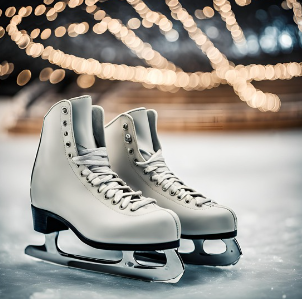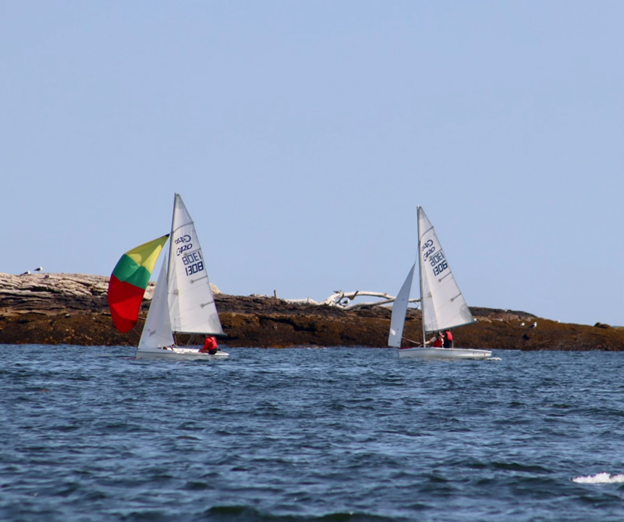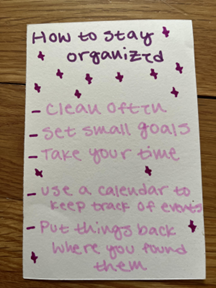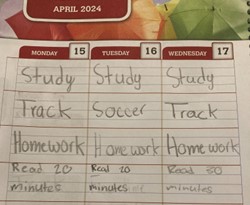“Sailing is a very delicate, but at the same time competitive sport. You have to stay focused constantly”, Said Sam Houghton, a fifteen year old who has sailed since the age of nine, at the Southport Yacht Club, on Southport Island Maine. “You can go any direction, except directly into the wind, and so this basically implies that wherever you want to go, it may not always be a straight route, you may have to maneuver a bit to get to a certain destination” Sam continues.
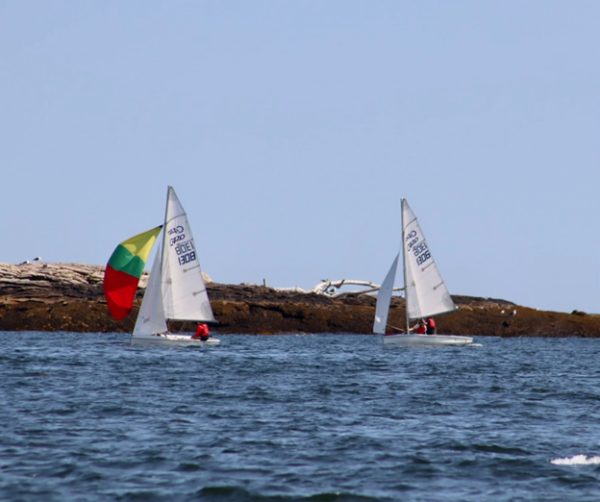
Next, is the basic equipment. All sailboats have these things: A mast, a sail, a rutter, a keel (or centerboard) and obviously, the hull of the boat itself. Also bear in mind that there are various lines that connect all of the equipment. One of the most important is the Main Sheet, which controls the sail.
With that, there are various sail positions, (points of sail). From downwind to upwind they look like this: dead, down wind, broad reach, beam reach, close reach, and close hauled. Close hauled is the highest you can head before you start luffing (when the sail loses air, or starts flapping, and you lose momentum).
Steering the boat can be boiled down to two ways. A tiller for smaller boats, and a wheel, for larger boats. Both move the rudder, which essentially pushes against the water flow, and allows the boat to charge against the current/tides. Remember points of sail when steering, you do not want to head right into the wind.
Perhaps most importantly is balance (which ties into a few things). The wind will push the boat over if improperly balanced. This is one of the many reasons you should pay attention at all times. Most of the time, the person sailing will sit opposite of where the boat is tipping (heeling). The centerboard helps keep the boat balanced, (the deeper it is in the water, the more stable the boat will be).
Common Mistakes
There are a few mistakes beginners may make, according to Sam, when starting to sail. This section will outline a few of said mistakes.
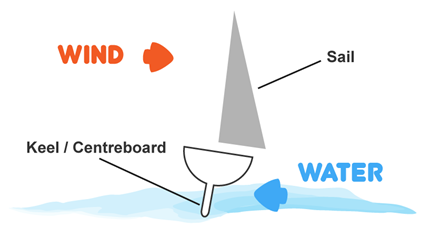
- When you sail, you obviously want and need your sail to be full of wind. Some beginners may not understand this, and will not take proper advantage of the wind. This will result in luffing (check the above passages) and will kill your momentum. Some sailors will simply not know how to (or that they should) maximize the usage of the wind.
- Not taking proper care of your boat is another big mistake for boating in general, but especially sailing. Since you have so many things to deal with, like all of the ropes, and parts of the boat, you have to make sure that they are all in working order. This is especially important if you sail on the ocean, with the salt water corroding your hull. You must always respect your equipment, otherwise you may be compromising your safety on the water. Around winter time, you should always pull your boat out of the water as well, since it is not being used.
- Another important thing to know (again, for boating in general) is proper navigation. The last thing you want to do is hit a rock, or get lost, with no help from the outside. You should always have a GPS at the very least, along with a map, and ideally background knowledge (or research) of the area you plan to sail in.
Now, this may seem quite scary, and make you back away from the hobby. It may seem overwhelming. But there are ways to make sure things like this don’t happen. “It’s basically like homework, but more fun if you will. You have to take classes, and learn under proper instruction before going out on your own, especially on choppy days, or days with bad weather” Sam Said. You should also take a boating course, to know the proper etiquette, and other knowledge.
Why Should You Sail?
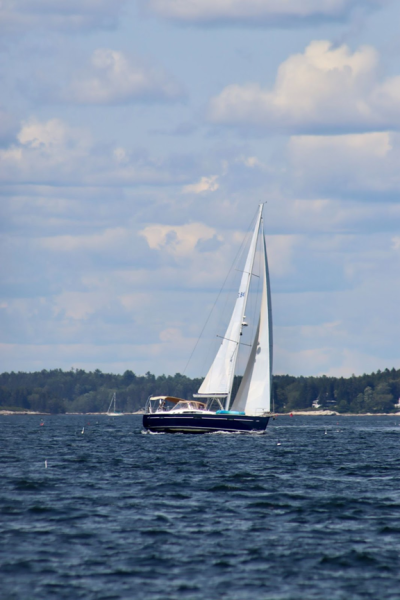
“Benefits of knowing is, it is something that many can not do, it is a good thing to have in your pocket. And more importantly, it teaches you to think critically, and plan out your actions, and so you think more critically.” said Sam.
Patience is another factor that is learned while sailing. Some days may not be windy, or you may have a choppy day to deal with, or maybe something breaks. In any case, you must be patient when sailing, as nothing goes your way all the time. Sailing also practically forces you to learn how to read maps, another useful skill. And, (going in the same vein as critical thinking) knowing what is/isn’t a good decision, and thinking under pressure. Lastly, sailing can be a team activity. As cheesy as it may be, it helps establish teamwork and other social skills.









